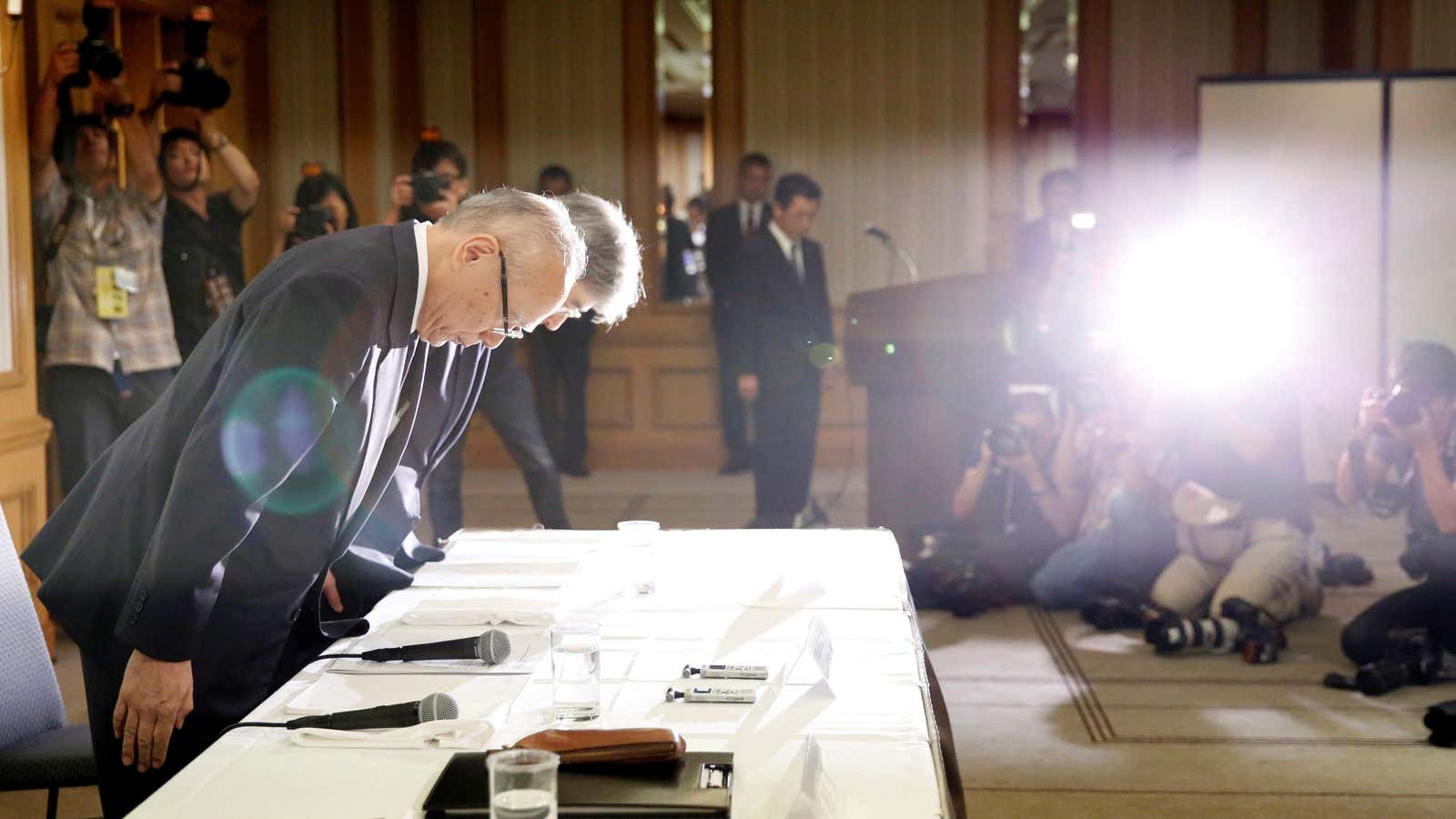Tokyo Medical University for years doctored the test scores of female applicants to admit fewer women because school officials believed that once women got married and had children they would be unable to fulfill their emergency shifts at hospitals.
Japanese media reports said today (Aug. 2) that the university had since 2011 been altering the test scores of females to make them lower after it recorded a growing number of women getting accepted to the school. The test scores were rigged so that no more than 30% of the successful candidates would be women.
In this year’s entrance exam, only 30 women were accepted, compared to 141 men, the Asahi newspaper reported.
An unnamed official of Tokyo Medical University told the Yomiuri newspaper (link in Japanese) that the practice had been conducted at the school with “quiet consent,” and that it was seen as a “necessary evil” because of worries that women will drop out of the workforce once they become pregnant. The Nikkei newspaper cited an unnamed source (link in Japanese) as saying that the school wanted to ensure it could have sufficient doctors working at its affiliated hospital. An unnamed source told the Asahi newspaper that the worries were also linked to a continuing shortage of doctors in Japan.
An internal investigation into the allegations found that the school had in fact been doctoring results of female applicants since 2006, and that the school had also been subtracting marks for male applicants who were taking the entrance exam for at least the fourth time, according to lawyers responsible for the probe on Aug. 7. The investigation also found that two former senior officials at the university had received money from parents of applicants whose exam scores had been inflated.
According to Japanese media reports citing the education ministry, universities are allowed to set their own gender ratio if they make such quotas public when taking in new students. Tokyo Medical University’s conduct was problematic as it did not announce such quotas, said a ministry official.
Tokyo Medical University last month was found to have inflated the test scores of the son of an education ministry bureaucrat in order to admit him. The bureaucrat in question, and two former high-ranking school officials, were indicted on bribery charges.
The article has been updated with the results of Tokyo Medical University’s internal investigation announced on Aug. 7.
